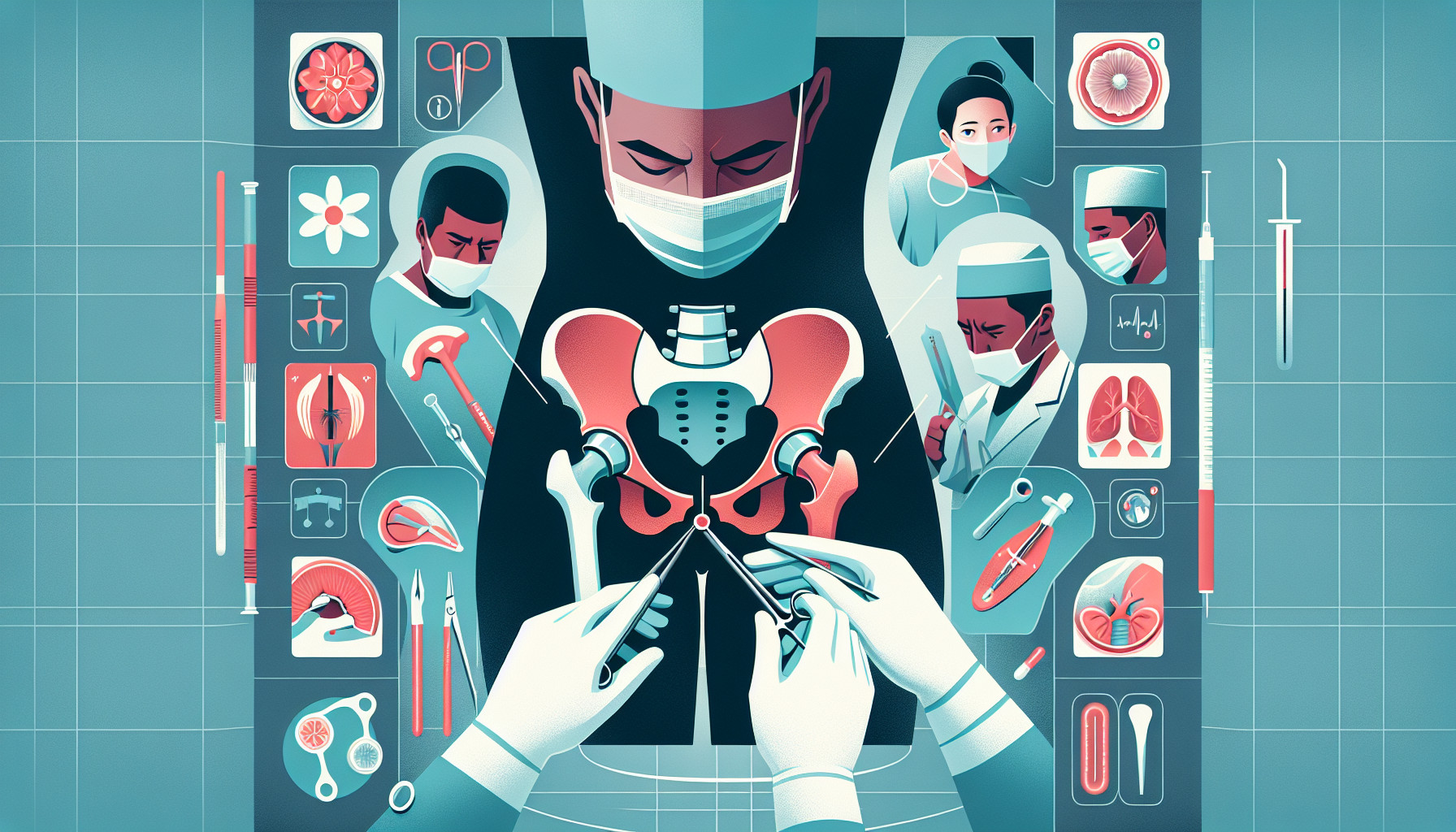Our Summary
There is a rising demand for hip replacement surgeries, and this trend is expected to continue, with revision surgeries increasing by 43-70% by 2030. One of the challenging aspects of these surgeries is the removal of the femoral stem, a part of the hip implant. This can lead to complications such as bone loss or fractures. However, technology is advancing and there are now more options for femoral stems and tools to extract them, which may help to overcome these challenges.
This study reviewed the different types of femoral stem extraction devices, including their pros and cons. It found that no single device is perfect for all situations. While traditional tools are still useful, newer extraction systems provide more precise and efficient removal of the femoral stem, reducing the risk of damage to the bone and shortening the time of the operation.
The study underlines the importance of proper planning before surgery, including identifying the type of implant that needs to be removed, in order to choose the most suitable extraction device. This is crucial for successful outcomes in hip revision surgeries.
FAQs
- What complications can arise from the removal of the femoral stem during hip replacement surgeries?
- How are advancements in technology improving the process of femoral stem extraction in hip replacement surgeries?
- Why is pre-surgery planning important in hip revision surgeries, particularly in relation to the extraction of the femoral stem?
Doctor’s Tip
Additionally, it is important for patients undergoing hip replacement surgery to follow their doctor’s post-operative instructions closely. This includes participating in physical therapy and rehabilitation to help regain strength and mobility in the hip joint. Staying active and maintaining a healthy weight can also help to prolong the life of the hip replacement and reduce the risk of complications. Regular follow-up appointments with your doctor are essential to monitor the progress of your hip replacement and address any concerns or issues that may arise.
Suitable For
Patients who are typically recommended for hip replacement surgery include those who have severe hip pain and limited mobility due to conditions such as osteoarthritis, rheumatoid arthritis, avascular necrosis, or hip fractures. These patients may have tried other conservative treatments such as medications, physical therapy, or injections without success. Additionally, patients who have not had success with previous hip surgeries or have significant damage to the hip joint may also be candidates for hip replacement surgery. It is important for patients to discuss their symptoms and medical history with their healthcare provider to determine if hip replacement surgery is the best option for them.
Timeline
Before hip replacement:
- Patient experiences pain, stiffness, and limited mobility in the hip joint.
- Consultation with a doctor to discuss the need for hip replacement surgery.
- Pre-operative assessments such as X-rays, blood tests, and physical exams are conducted.
- Surgery is scheduled with the orthopedic surgeon.
After hip replacement:
- Patient undergoes the hip replacement surgery, which typically takes a few hours.
- Recovery period in the hospital for a few days to monitor for any complications.
- Physical therapy and rehabilitation to regain strength and mobility in the hip joint.
- Follow-up appointments with the surgeon to monitor healing and progress.
- Gradual return to normal activities and daily life, with continued exercises and precautions to prevent complications.
What to Ask Your Doctor
Some questions a patient should ask their doctor about hip replacement surgery and femoral stem extraction devices include:
- What type of femoral stem will be used in my hip replacement surgery?
- What are the potential complications associated with femoral stem extraction during a revision surgery?
- How will you determine the best extraction device for my specific situation?
- What are the pros and cons of the different femoral stem extraction devices available?
- How do you plan to minimize the risk of bone loss or fractures during the extraction process?
- How will the choice of extraction device impact the length of my surgery and recovery time?
- Are there any specific precautions or considerations I should be aware of before and after the surgery regarding femoral stem extraction?
- What is your experience and success rate with using different types of femoral stem extraction devices?
- Are there any alternative treatment options or technologies that could be considered for my hip revision surgery?
- Can you provide me with more information or resources to further educate myself about femoral stem extraction devices and their role in hip replacement surgeries?
Reference
Authors: Khan ST, Huffman N, Walsh J, Pasqualini I, Piuzzi NS, Deren ME. Journal: Arch Orthop Trauma Surg. 2024 Dec 12;145(1):27. doi: 10.1007/s00402-024-05701-y. PMID: 39666065
